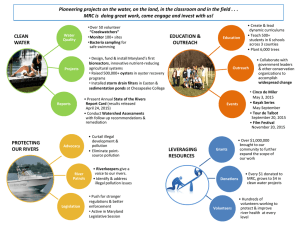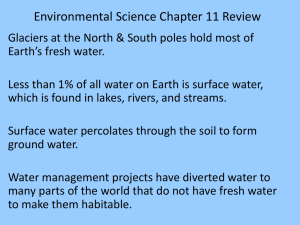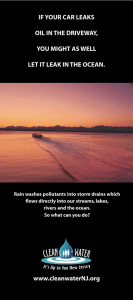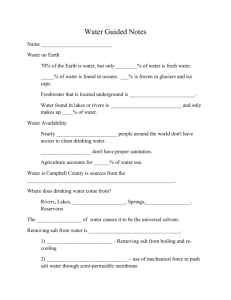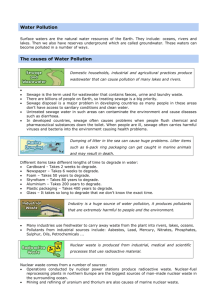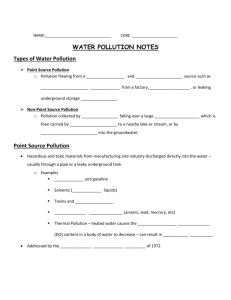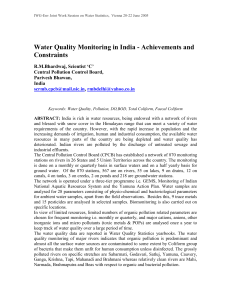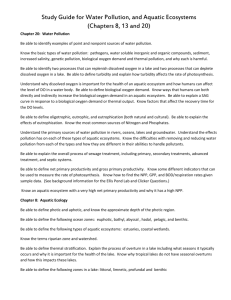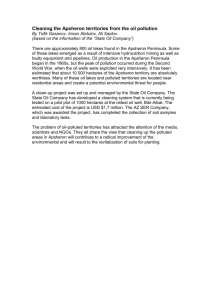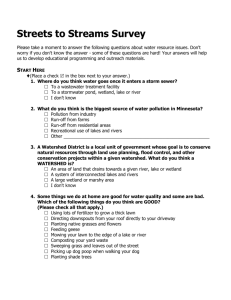Virtually all types of water pollution are harmful to the
advertisement
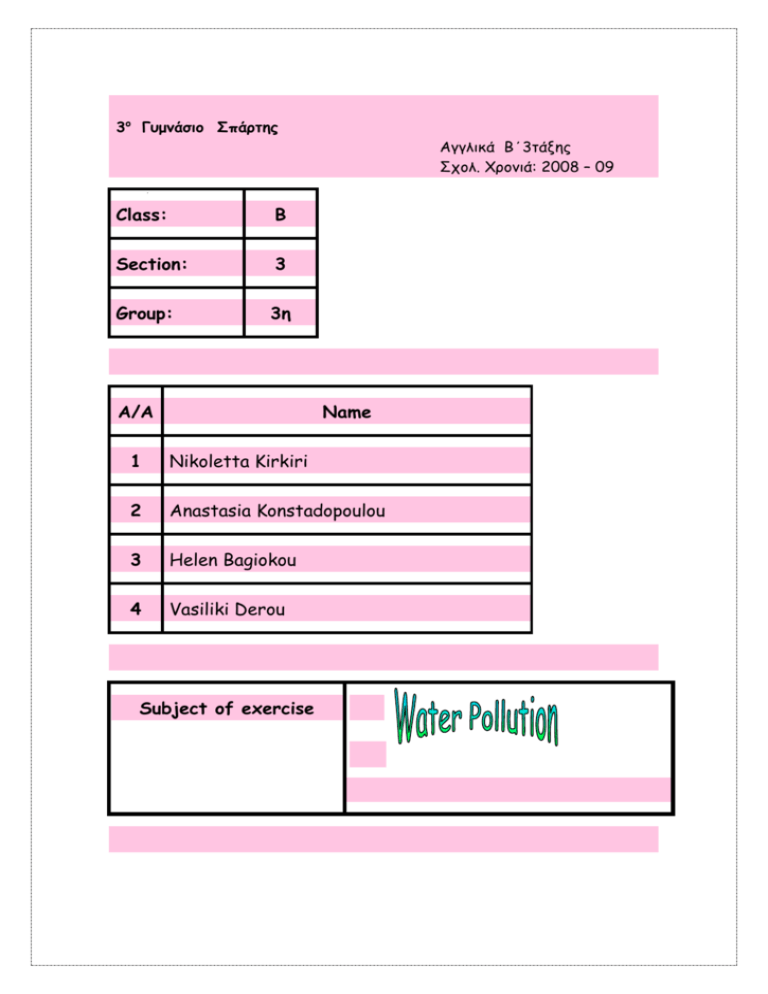
3ο Γυμνάσιο Σπάρτης Αγγλικά Β΄3τάξης Σχολ. Χρονιά: 2008 – 09 Class: Β Section: 3 Group: 3η Α/Α Name 1 Nikoletta Kirkiri 2 Anastasia Konstadopoulou 3 Helen Bagiokou 4 Vasiliki Derou Subject of exercise Water covers over 70% of the Earth's surface and is a very important resource for people and the environment. Water pollution affects drinking water, rivers, lakes and oceans all over the world. This consequently harms human health and the natural environment. Here you can find out more about water pollution and what you can do to prevent it. Virtually all types of water pollution are harmful to the health of humans and animals. Water pollution may not damage our health immediately but can be harmful after long term exposure. Different forms of pollutants affect the health of animals in different ways: Heavy metals from industrial processes can accumulate in nearby lakes and rivers. These are toxic to marine life such as fish and shellfish, and subsequently to the humans who eat them. Heavy metals can slow development; result in birth defects and some are carcinogenic. Industrial waste often contains many toxic compounds that damage the health of aquatic animals and those who eat them. Some of the toxins in industrial waste may only have a mild effect whereas other can be fatal. They can cause immune suppression, reproductive failure or acute poisoning. Microbial pollutants from sewage often result in infectious diseases that infect aquatic life and terrestrial life through drinking water. Microbial water pollution is a major problem in the developing world, with diseases such as cholera and typhoid fever being the primary cause of infant mortality. Organic matter and nutrients causes an increase in aerobic algae and depletes oxygen from the water column. This causes the suffocation of fish and other aquatic organisms. Sulfate particles from acid rain can cause harm the health of marine life in the rivers and lakes it contaminates, and can result in mortality. Suspended particles in freshwater reduces the quality of drinking water for humans and the aquatic environment for marine life. Suspended particles can often reduce the amount of sunlight penetrating the water, disrupting the growth of photosynthetic plants and micro-organisms. If we want to help keep our waters clean, there are many things we can do to help. We can prevent water pollution of nearby rivers and lakes as well as groundwater and drinking water by following some simple guidelines in our everyday life. Conserve water by turning off the tap when running water is not necessary. This helps prevent water shortages and reduces the amount f contaminated water that needs treatment. Be careful about what you throw down your sink or toilet. Don't throw paints, oils or other forms of litter down the drain. Use environmentally household products, such as washing powder, household cleaning agents and toiletries. Take great care not to overuse pesticides and fertilisers. This will prevent runoffs of the material into nearby water sources. By having more plants in your garden you are preventing fertiliser, pesticides and contaminated water from running off into nearby water sources. Don't throw litter into rivers, lakes or oceans. Help clean up any litter you see on beaches or in rivers and lakes, make sure it is safe to collect the litter and put it in a nearby dustbin.
